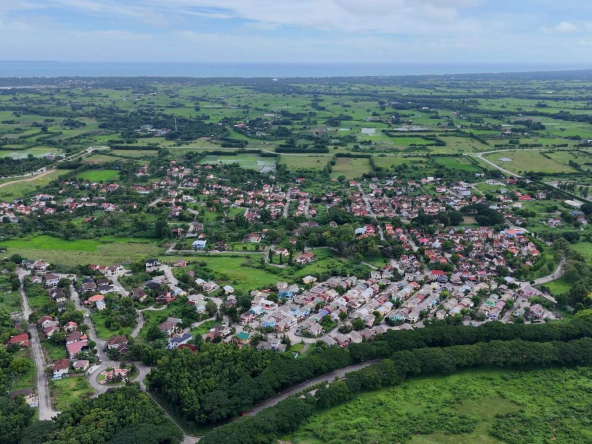
Image source: Freepik
When we think of remembering loved ones on this special day, our hearts often stir between grief and gratitude. In the Philippines, Souls Day bears deep meaning—a time when faith meets remembrance and families and friends gather in solemn hope. This article offers meaningful ways to honor those who have passed, rooted in Catholic tradition and personal connection.
The Heart of Remembering Loved Ones on Souls Day
In the Catholic Church, Souls Day (observed November 2, the next day after All Saints Day) stands as a solemn occasion to pray for the faithful departed and holy souls. It is distinct but linked to All Saints Day, which we observe the day before. While Saints Day is a celebration for those canonized as saints, Souls Day commemorates all the faithful who have died but not yet reached their heavenly reward. It is one day in a year when the world stops to ensure we do not forget our dearly departed.
This holy day affirms belief in eternal life, grounded in the mystery of Christ Jesus, our Father. Our remembrance is not mere nostalgia—it is rooted in hope. As prayers are offered, masses are heard, and acts of love are performed freely, we entrust beloved dead into God’s mercy. In doing so, our sorrow mingles with hope—grief that remembers, but does not despair.
How the Catholic Church Honors the Holy Souls
The theology behind All Souls Day is centered on the belief that some souls undergo purification after death. These are the suffering souls or poor souls in purgatory, undergoing a cleansing before entering heaven. As early as the sixth century, church communities began commemorating the deceased, especially in the Western Church. Over time, the Anglican Communion and other Western Christian traditions also adopted practices of remembrance.
The Church encourages such prayers with spiritual benefits. Through the offering of Masses, indulgences, and works of charity, we may alleviate the temporal punishment due to sin. On All Souls Day, the faithful may gain a partial indulgence when attending Mass and praying for the dead. On some occasions, when conditions are met (confession, Eucharist, prayer for the pope’s intentions), a plenary indulgence is possible. These spiritual aids express mercy for holy souls, bridging our life on earth with their journey to eternity.
Visiting Family Graves and Lighting Candles for the Faithful Departed
One of the most visible traditions in the Philippines is how many families visit family graves on November 2, sometimes starting the evening of November 1. Cemeteries become places of reunion and remembrance, with loved ones gathering at burial plots to pray, talk, cry, and reflect. In many localities, people flock to public cemeteries, filling the grounds with color, candles, and life in memory of the dead.

Image source: https://www.goldenhaven.com.ph/properties/golden-haven-memorial-park-cagayan-de-oro/
At these graves, candles and special grave lights are placed as signs of prayer and hope. The light symbolizes faith in eternal rest, guiding souls toward heaven, reminding us that life transcends death. Families often bring fresh flowers, and children sometimes help set small lanterns or light candles. These acts blend tenderness and ritual—visiting graves, praying in quiet, lighting candles—imbuing mourning with moments of joy and remembrance.
Holding a Memorial Service at Home or Church
Another meaningful way to remember is organizing a memorial service—whether in a parish church or a household gathering. Families may invite a priest to celebrate Mass or a special blessing, and pray the rosary or other devotions for holy souls. This can deepen the sense of communion between the living and the faithful departed.
In Camella Homes developments, multipurpose halls sometimes host such services. Residents may come together to pray, share memories, and support one another. In communities with parks, quiet gardens, or prayer corners, families find solace in gathering near nature while remembering those who have died. When faith communities gather, the church affirms the dignity of the departed, celebrates eternal life, and reassures those in grief that we remain connected through Christ.
Offering Flowers and Pouring Libations
Beyond candles and visits, traditions of offering flowers or pouring libations (small offerings of water, wine, or symbolic liquid) continue in many cultures as expressions of respect and memory. Some call these acts part of honoring the poor souls—a cultural bridge between earth and heaven.
In the Philippines, we may see families bring garlands, vibrant blooms, or potted plants to graves. The act of pouring libations—though not official Catholic ritual—persists in some regions, rooted in ancestral practices. You can adopt or adapt these customs gently, ensuring they align with faith; for instance, after the libation gesture, offer a prayer for the soul.
These practices echo what you’ll see in Latin America or jour des morts traditions in other languages—even when expressed differently, they share a desire to keep memory alive. In blending cultural acts and prayer, we affirm our ongoing relationship with the departed, bridging life and remembrance.

Acts of Charity and Raising Money for the Poor
A noble way to honor loved ones is by turning grief into giving. On or around Souls Day, many families and parish groups raise money or donate to help the poor—offering alms in memory of those who have died. In doing so, we assist suffering souls by performing works of mercy, making concrete gestures of love.
Some families sponsor a Mass, feed the needy, support orphanages, or contribute to community outreach. These charitable acts are more than memorials; they echo the Gospel call to help “the least of these.” The joy of serving draws us closer to God’s heart, reminding us that our connection to the departed is lived out by caring for the living.
Teaching the Young About Faith, Death, and Eternal Life
Honoring memory isn’t only for adults. It’s vital to involve children in understanding death, life, and the hope of heaven. Kids can help choose flowers, light candles (with supervision), or recite simple prayers for souls.
Parents and grandparents can share stories of family members who have passed, emphasizing how faith teaches eternal life and mercy. These traditions, tenaciously maintained across generations, form the backbone of family identity. Rather than shielding children from grief, we can gently guide them to see that prayer, memory, and love transcend earthly absence.
Creating Personal Rituals of Remembrance
Alongside communal practices, families can develop personal rituals that speak to their unique bonds. Ideas include:
- Writing letters to loved ones who have died, sharing ongoing thoughts and prayers
- Planting a tree or flowering shrub in their memory
- Lighting a midnight candle or playing a favorite hymn
- As a family, pausing on Sunday mornings to say a prayer for the departed
- Keeping a memory box of photos, keepsakes, or small mementos

Image source: https://www.timeanddate.com/holidays/philippines/all-souls-day
Keeping the Spirit of Souls Day Alive Beyond November 2
Observing All Souls Day should inspire more than a one-day act—it invites a lifelong posture of remembrance. Families can continue praying for souls — especially on anniversaries, birthdays, or holy days throughout the year. Some choose to dedicate each month to one departed person, offering Mass or spiritual works.
When remembrance becomes part of daily or monthly rhythms, the holiday becomes a gateway to sustained faith. Even simple gestures—such as lighting a candle quietly or raising a prayer before bedtime—nurture ongoing communion with the faithful departed and deepen trust in God’s mercy.
Finding Communion and Peace Through Faith
Ultimately, honoring memory is not just about rituals, but about communion—a bond that transcends earthly life. The living, holy souls, and faithful departed form one spiritual family. When we pray, we touch that communion. Our acts of remembrance draw us into the church on earth and unite us with God’s family in heaven.
This awareness brings peace: that while someone has died, they are loved eternally. Our prayers, works, and traditions testify that death does not sever bonds. We remain connected, trusting in eternal life through Christ Jesus. In remembering, we affirm faith, love, and hope.
Conclusion: Faith, Family, and Eternal Hope
From visiting graves and lighting candles to memorial services, acts of charity, and personal rituals, each gesture carries weight. The Catholic Church has seen these traditions tenaciously maintained over centuries, linking believers across time and space. In honoring the faithful departed, we affirm life, not merely mourn death.
We hold fast to the promise of eternal life, cling to memory, and allow love to transcend absence. May each candle, prayer, and act of kindness echo into eternity, drawing us deeper into communion with God and with those we love beyond the veil.

Celebrate Life’s Milestones in Camella!
Make unforgettable memories in a Camella home.
Our communities are designed to elevate your living experience.


